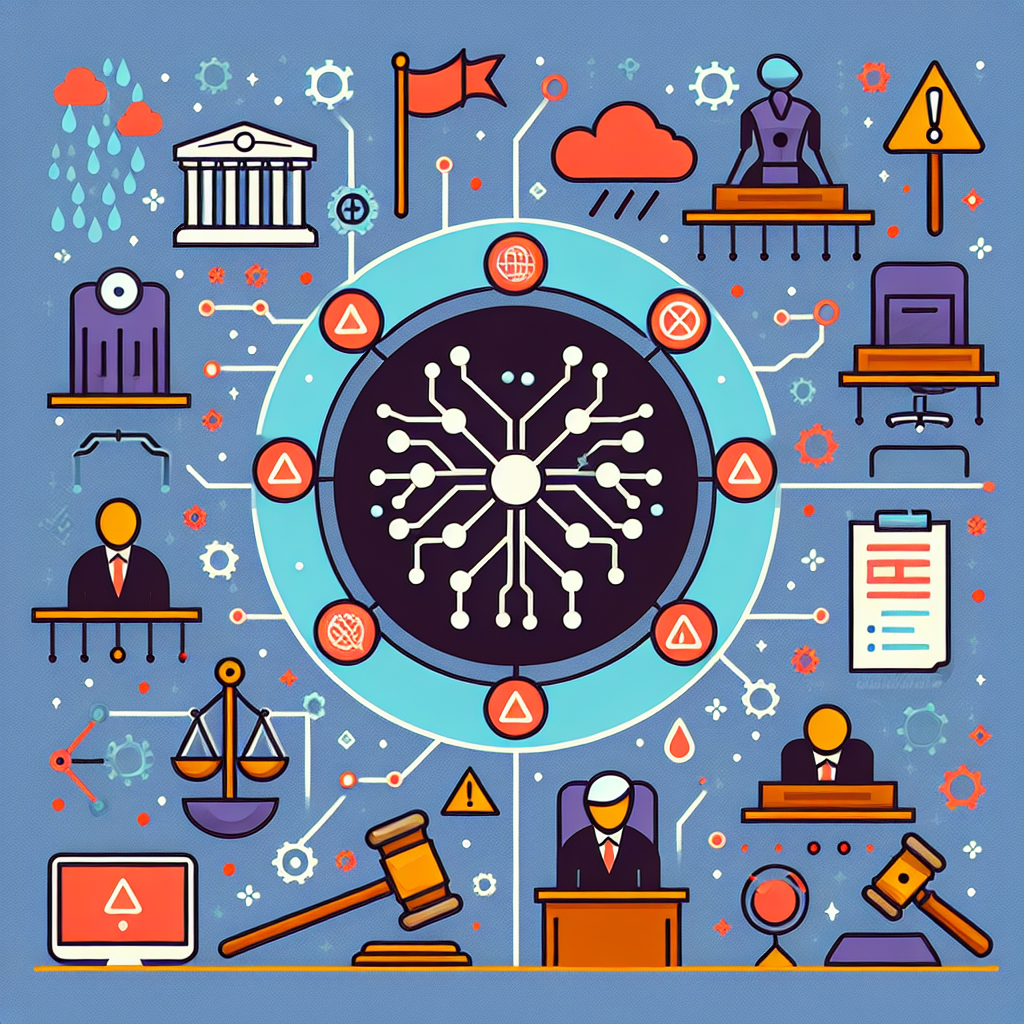Artificial Intelligence (AI) has rapidly evolved in recent years, becoming an integral part of our daily lives. From virtual assistants like Siri and Alexa to self-driving cars and predictive algorithms, AI technology is transforming industries and revolutionizing the way we live and work. However, as AI continues to advance, concerns about its impact on society and governance have also grown. In this article, we will explore the risks associated with AI and how governance can address these challenges.
Risks of Artificial Intelligence
1. Bias and Discrimination: One of the biggest risks of AI is the potential for bias and discrimination in decision-making processes. AI algorithms are trained on historical data, which may contain biases that result in unfair outcomes. For example, AI-powered hiring tools have been found to favor male candidates over female candidates, perpetuating gender bias in the workplace.
2. Lack of Accountability: AI systems are often complex and opaque, making it difficult to understand how they arrive at their decisions. This lack of transparency can lead to a lack of accountability, as it is challenging to hold AI systems responsible for errors or biases.
3. Job Displacement: As AI technology becomes more advanced, there is a growing concern about job displacement. Automation and AI-powered robots are increasingly replacing human workers in various industries, leading to unemployment and economic instability.
4. Security and Privacy Concerns: AI systems can be vulnerable to hacking and cyberattacks, leading to security breaches and privacy violations. For example, facial recognition technology has raised concerns about surveillance and the potential for misuse by governments and corporations.
5. Autonomous Weapons: The development of autonomous weapons powered by AI poses a significant risk to global security. These weapons have the potential to make decisions without human intervention, raising ethical questions about the use of lethal force.
Addressing AI Risks through Governance
Governance plays a crucial role in mitigating the risks associated with AI technology. By establishing regulations, guidelines, and ethical standards, governments and organizations can ensure that AI is developed and deployed responsibly. Here are some key strategies for addressing AI risks through governance:
1. Transparency and Accountability: Governments and organizations should prioritize transparency and accountability in AI development. This includes making AI systems explainable and ensuring that they are held accountable for their decisions. By implementing mechanisms for auditing and oversight, stakeholders can monitor and regulate AI systems to prevent bias and discrimination.
2. Ethical Guidelines: Establishing ethical guidelines for AI development is essential for ensuring that AI technology aligns with societal values and norms. Ethical frameworks can help guide decision-making processes and promote responsible AI innovation. For example, the European Commission has developed guidelines for trustworthy AI that emphasize transparency, fairness, and accountability.
3. Data Privacy and Security: Protecting data privacy and security is critical for maintaining trust in AI technology. Governments should enact robust data protection laws and regulations to safeguard personal information and prevent unauthorized access. Encryption, anonymization, and data minimization techniques can help mitigate the risks of data breaches and cyberattacks.
4. Education and Training: Promoting education and training in AI ethics and governance is essential for building a skilled workforce capable of addressing AI risks. Governments and organizations should invest in training programs and resources that equip individuals with the knowledge and skills needed to navigate the ethical complexities of AI technology.
5. International Cooperation: Collaboration among governments, industry stakeholders, and civil society is crucial for addressing global AI risks. International cooperation can help establish common standards and norms for AI governance, fostering a harmonized approach to regulating AI technology across borders.
Frequently Asked Questions about AI Governance
Q: What is the role of governments in regulating AI technology?
A: Governments play a key role in regulating AI technology to ensure that it is developed and deployed responsibly. By enacting laws, regulations, and guidelines, governments can promote transparency, accountability, and ethical standards in AI innovation.
Q: How can organizations promote ethical AI practices?
A: Organizations can promote ethical AI practices by establishing internal policies, guidelines, and training programs that prioritize transparency, fairness, and accountability. By embedding ethical considerations into their AI development processes, organizations can mitigate risks and build trust with stakeholders.
Q: What are the ethical considerations in AI governance?
A: Ethical considerations in AI governance include transparency, fairness, accountability, and privacy. By addressing these ethical principles, stakeholders can ensure that AI technology is developed and deployed in a responsible manner that aligns with societal values and norms.
Q: How can individuals contribute to AI governance?
A: Individuals can contribute to AI governance by advocating for transparency, fairness, and accountability in AI development. By staying informed about AI risks and engaging with policymakers and industry stakeholders, individuals can help shape the ethical and regulatory framework for AI technology.
In conclusion, addressing the risks of AI through governance is essential for ensuring that AI technology benefits society while minimizing harm. By promoting transparency, accountability, and ethical standards in AI development, governments and organizations can build trust with stakeholders and mitigate the potential risks associated with AI technology. Through collaboration, education, and international cooperation, we can navigate the ethical complexities of AI governance and promote responsible AI innovation for the future.

